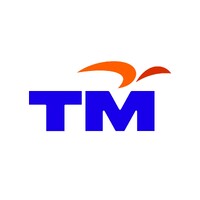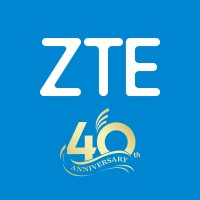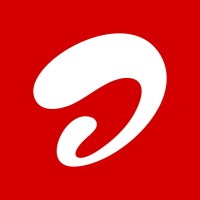Company Cyber Security Posture
NANA
NA Company Details
NA
NA
NA
NA
NA
NA
Scan still pending
NA
NA
Between 200 and 800
This score is AI-generated and less favored by cyber insurers, who prefer the TPRM score.
 NA Global Score
NA Global Score.png)

Company Scoring based on AI Models
| Model Name | Date | Description | Current Score Difference | Score |
|---|---|---|---|---|
| AVERAGE-Industry | 03-12-2025 | This score represents the average cybersecurity rating of companies already scanned within the same industry. It provides a benchmark to compare an individual company's security posture against its industry peers. | N/A | Between 200 and 800 |
Company Cyber Security News & History
| Entity | Type | Severity | Impact | Seen | Url ID | Details | View |
|---|
Company Subsidiaries

NA
Access Data Using Our API

Get company history
.png)
NA Cyber Security News
Contract lapse leaves critical infrastructure cybersecurity sensor data unanalyzed at national lab
Data from sensors that detect threats in critical infrastructure networks is sitting unanalyzed after a government contract expired this weekend ...
Don’t fall for these 4 cybersecurity myths
Myth: Most hacking is the work of super genius computer nerds · Myth: Two-Factor Authentication Is a Waste of Time · Myth: VPNs Are Totally ...
Temu Lawsuits Pit States Against a Digital Superpower
Kentucky last week filed a lawsuit accusing Temu of sharing sensitive data from its online shoppers with the Chinese government, ...
Trump AI plan calls for cybersecurity assessments, threat info-sharing
The U.S. government will expand information sharing, cyber risk evaluations and guidance to the private sector to address the cybersecurity ...
Jim Cramer says buy these 2 cybersecurity stocks in the wake of Microsoft's attack
CNBC's Jim Cramer has long believed that cyber stocks are an essential part of investors' portfolios.
AI-Driven Cybersecurity Boom Makes These 3 Stocks Worth Buying
An updated edition of the June 9, 2025 article. Cybersecurity has shifted from being just an IT task to a major business priority.
As AI tools take hold in cybersecurity, entry-level jobs could shrink
AI in cybersecurity is transforming team roles, reducing entry-level jobs while creating new opportunities and reshaping hiring priorities.
Agentic AI Turns Enterprise Cybersecurity Into Machine vs. Machine Battle
The first AI-driven preemptive cyber-defense has taken place. Now, corporate leaders may need to confront questions about agentic AI.
Cybersecurity breach at hedge fund manager Waratah may have exposed sensitive client data
Money manager told clients the incident may have impacted investor names, addresses, SINs, account numbers and other personal information.

NA Similar Companies

Telekom Malaysia
TM is the national connectivity and digital infrastructure provider and Malaysia’s leading integrated telco; offering a comprehensive suite of communication services and solutions in fixed (telephony and broadband), mobility, content, WiFi, ICT, Cloud and smart services. TM is driven by stakeholder

ZTE Corporation
ZTE Corporation is a global leading provider of integrated information and communication technology solutions. Founded in 1985 and listed on both the Hong Kong and Shenzhen Stock Exchanges, the company has been committed to providing innovative technologies and integrated solutions for global operat

Telenor
EMPOWERING SOCIETIES. CONNECTING YOU TO WHAT MATTERS MOST. Telenor Group is a leading telecommunications company across the Nordics and Asia with 158 million subscribers and annual sales of around NOK 99 billions (2022). We are committed to responsible business conduct and driven by the ambition

Telstra
We believe it’s people who give purpose to our technology. So we’re committed to staying close to our customers and providing them the best experience. And delivering the best tech. On the best network. Because our purpose is to build a connected future so everyone can thrive. We build techno

vivo
vivo is a technology company that creates great products based on a design-driven value, with smart devices and intelligent services as its core. The company aims to build a bridge between humans and the digital world. Through unique creativity, vivo provides users with an increasingly convenient mo

airtel
Airtel was founded to provide global connectivity and unlock endless opportunities. Our organization embodies a unique blend of energy, innovation, creativity, dedication, scale, and ownership, all aimed at being limitless. At Airtel, we strive to go beyond our duties to create impactful solutions f

Frequently Asked Questions
Explore insights on cybersecurity incidents, risk posture, and Rankiteo's assessments.
NA CyberSecurity History Information
How many cyber incidents has NA faced?
Total Incidents: According to Rankiteo, NA has faced 0 incidents in the past.
What types of cybersecurity incidents have occurred at NA?
Incident Types: The types of cybersecurity incidents that have occurred include .
Additional Questions
What Do We Measure?
















Every week, Rankiteo analyzes billions of signals to give organizations a sharper, faster view of emerging risks. With deeper, more actionable intelligence at their fingertips, security teams can outpace threat actors, respond instantly to Zero-Day attacks, and dramatically shrink their risk exposure window.
These are some of the factors we use to calculate the overall score:
Identify exposed access points, detect misconfigured SSL certificates, and uncover vulnerabilities across the network infrastructure.
Gain visibility into the software components used within an organization to detect vulnerabilities, manage risk, and ensure supply chain security.
Monitor and manage all IT assets and their configurations to ensure accurate, real-time visibility across the company's technology environment.
Leverage real-time insights on active threats, malware campaigns, and emerging vulnerabilities to proactively defend against evolving cyberattacks.




